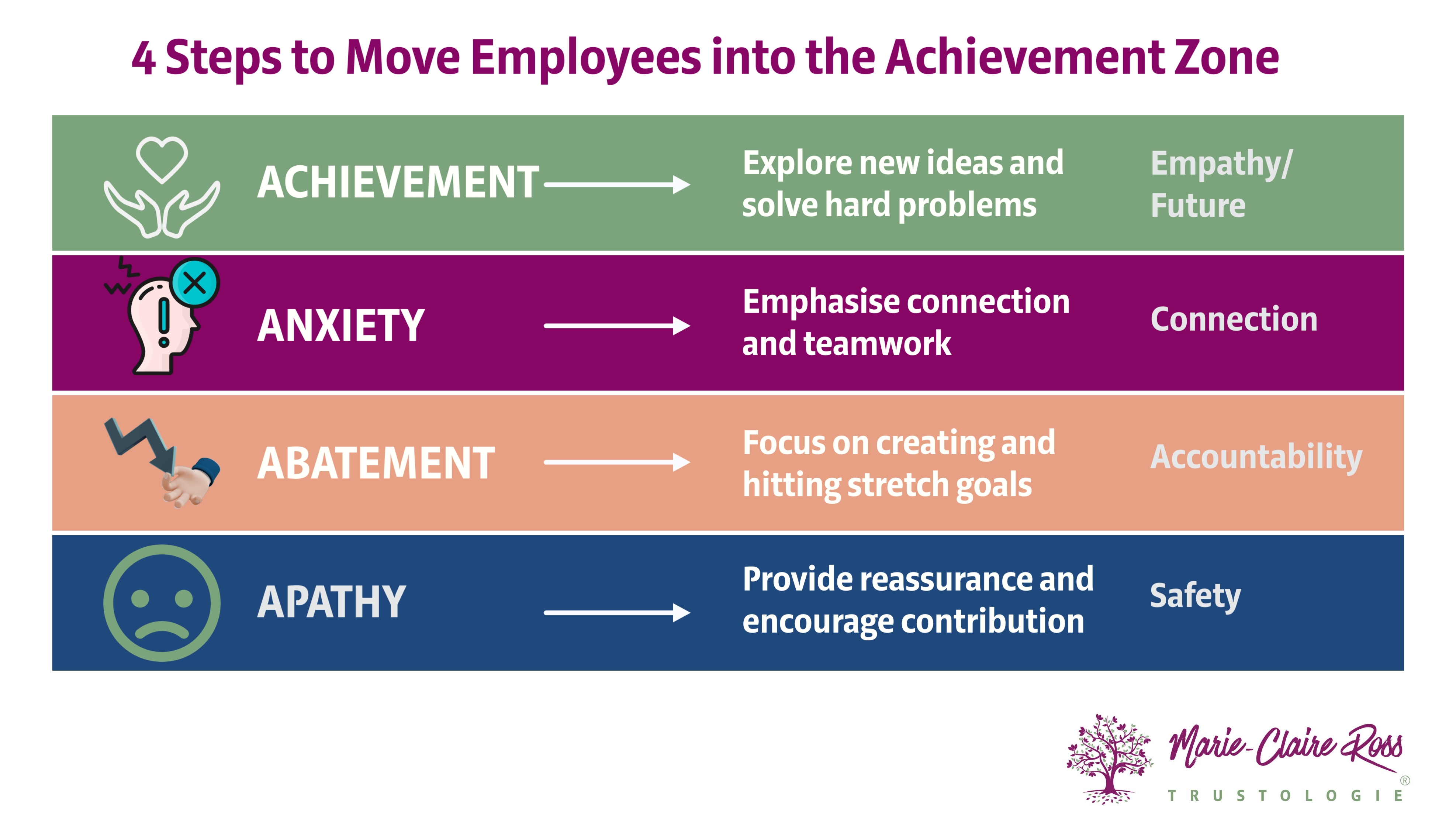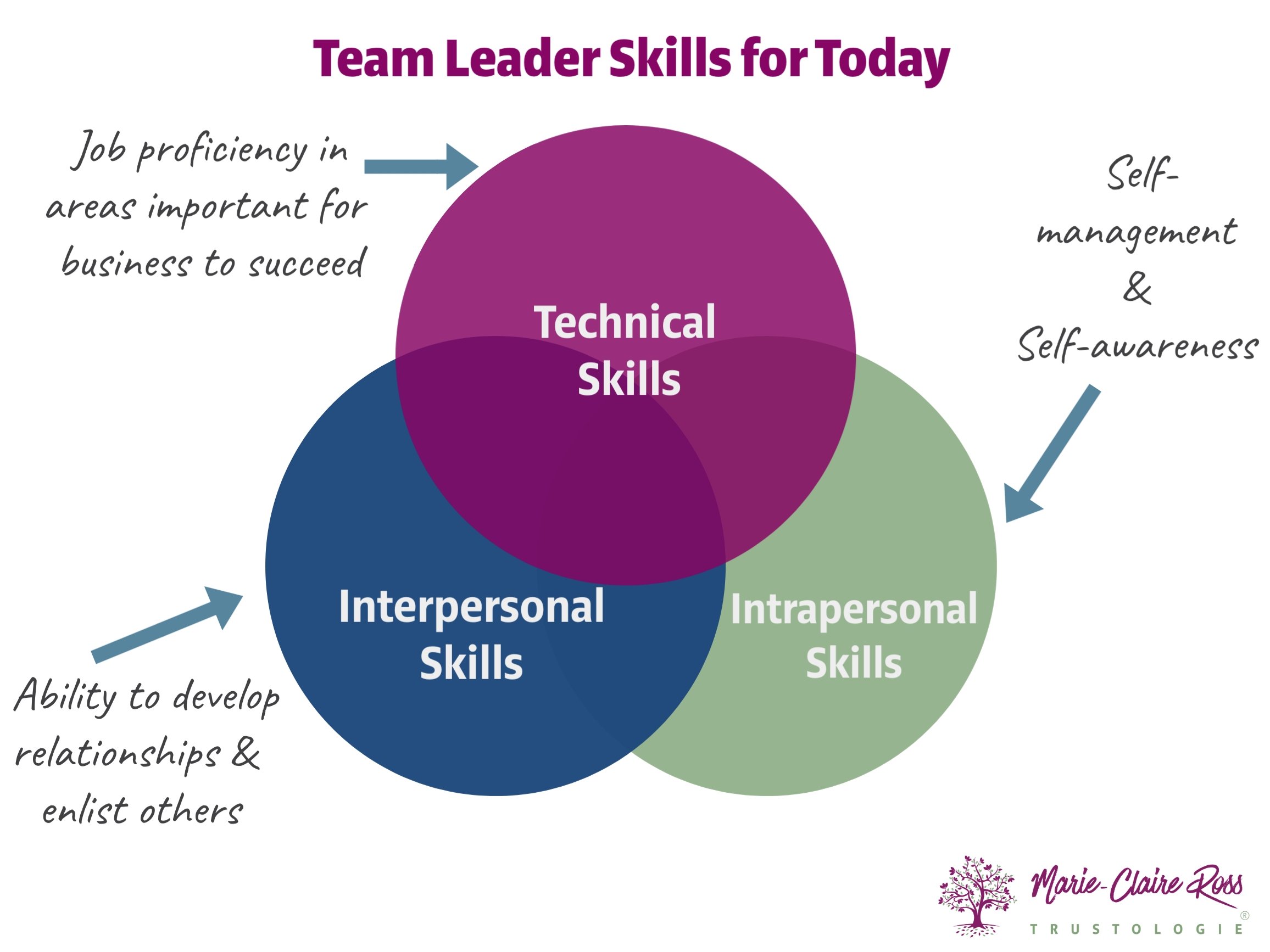11 min read
4 Practical Strategies for Better Emotional Management in the Workplace
I have a friend who often finds herself at the mercy of her emotions. Recently, she called me to rehash a confrontation she’d had with a group of...
Develop leaders, strengthen executive teams and gain deep insights with assessments designed to accelerate trust and performance.

Transform how your leaders think and perform with keynotes that spark connection, trust and high-performance cultures.

Explore practical tools, thought-leadership and resources to help you build trusted, high-performing teams.

Trustologie® is a leadership development consultancy founded by Marie-Claire Ross, specialising in helping executives and managers build high-trust, high-performing teams.

4 min read
Marie-Claire Ross : Updated on September 21, 2022

Cast your mind back to when you last had a face-to-face meeting in your leadership or management team. What did you talk about?
Typically, most leadership teams get together online and the focus is on individual reporting. People go around the room and talk about what results they have achieved. Every week, these weekly meetings focus on information sharing with little decision making, exchanging of ideas or big picture discussions.
A study by Zenger and Folkman analysed 400,000 360-degree survey results. They found that the most successful leaders possessed a powerful combination of competencies. Of leaders in the top quartile, 66% possessed both a focus on results and interpersonal skills (the ability to develop and maintain relationships). Meanwhile, only 13% of leaders who focused on results alone and only 9% of leaders who focused on interpersonal skills alone reached the 90% percentile.
Focusing on both results and interpersonal skills ensures there are fewer people issues to handle. In other words, there is less friction in achieving outcomes.
Typically, most team teams come together and they share the what - what they are doing. Yet, how the results are being achieved matter equally as much. When leaders only focus on what they are achieving, it's too easy for success to be manipulated through optimising revenue and expenses to match earning expectations. It also makes it more common for people to push their own agenda without considering the needs of others.
Discussing team dynamics, or the stuff you can't always see, is critical to high performance. Otherwise, you are at the mercy of poor behaviours that never get addressed.
Talking about behaviours and interactions can be revolutionary. This is because it is quite rare in business. Not only that, people love the discussions. It gives them a whole new perspective on why people are behaving the way they do. More importantly, it provides a reflective lens to contemplate how they, themselves, are operating.
Clients tell me is that it can also be a refreshing change to discuss the people side of things and interactions, rather than skills to do jobs. Delving into the how and why gives a more rounded and holistic approach to leading. Given that employees expectations have changed and they want more caring leaders, it provides the discussions to help support employees and one another at a more deeper level.
What the pandemic has taught us is that when we work with a team in-person, we can work together at a deeper level when we understand one another and their perspectives. It can really fun. Particularly, when we include social time that helps us learn more about our colleagues.
Making time to talk about behaviours for high performance works so much better when we are in-person. If you are involved in bringing teams together at off-sites or internal conferences, you can add more value to your people and organisation by more purposefully making time to:
1. Learn about one another - Most social time in organisations tends to encourage people to hang out with those they know. Be conscious about introducing new people to one another and having discussions that get beyond the superficial. This can be done by making it safe to be vulnerable with one another to discuss failures or stressful times in our lives. Research shows that when we understand how people deal with stress, it helps us trust them more. We need to know people's triggers and how they deal with challenges.
2. Make time to learn together - Take the time to learn more about the people side of work. Consider bringing in a facilitator with a different perspective to show you the benefits of true collaboration and get you working and talking together at a different level. A great facilitator should be able to provide you with a new frame to have a shared understanding of behaviours, so you can have richer conversations and new perspectives on leadership. After all, you don't know what you don't know. For a leadership team that can be disastrous.
3. Discuss behaviours important for your success - Get deep and address key opportunity areas and behaviours most important to your success. When you have discussions that deep dive into your leadership values you will be quite surprised at what you unearth - not only as a team, but as individuals.
In most organisations, there are few opportunities to get together and really understand one another well. Making time and space to have more meaningful discussions, not only reduces silo-thinking, it also improves how people feel about one another. It helps unite a team together, even teams that have been together for a long time or get along well. It really works towards maintaining the performance of your team and making your off-site more memorable.
That's where I can help. If you want to know more about the programs I run at off-sites or internal conference, download my off-site flyer here or contact me using this form.

11 min read
I have a friend who often finds herself at the mercy of her emotions. Recently, she called me to rehash a confrontation she’d had with a group of...

9 min read
True leadership presence isn’t a performance or a set of charisma hacks; it is the felt experience of who you are being in the room. By cultivating...

13 min read
As teams return from their summer (or winter) break, you may notice subtle shifts in your team’s energy. Even if the end of year was positive, a new...

As a leader, your job is to create a positive work environment where people work together in service of a shared goal - a high-performance atmosphere

The pandemic has been a game-changer in so many aspects. In the workplace, it has really crystallised what we want in our work experience.

Copy writers know how to write advertising so that people will read their content.